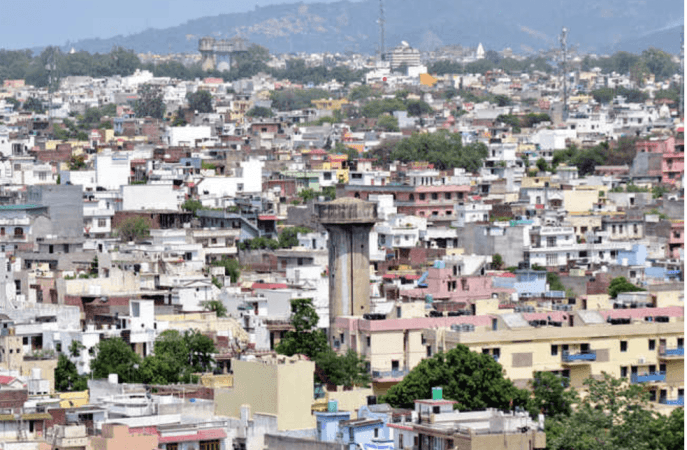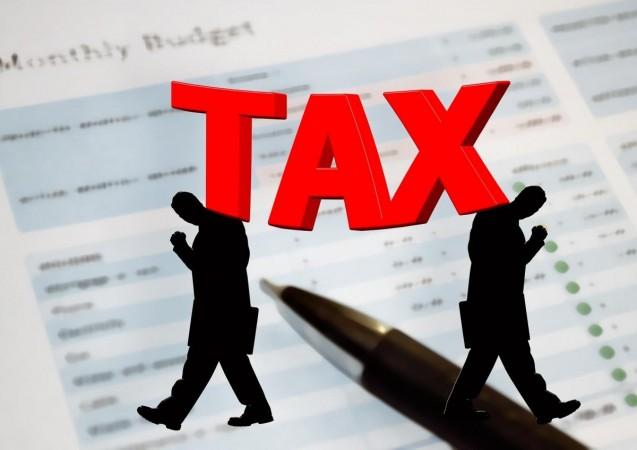As the J&K government rolled out a notification about imposing property tax in all the Urban Local Bodies of the UT for the first time ever, people are confused and agitated based on some misleading information online. The government announced on Tuesday that tax will be applicable on all properties - residential and non-residential — at rates of 5 percent and 6 percent annually of Taxable Annual Value (TAV).
The local opposition leaders were quick to register their disapproval, seeking to start a controversy where isn't one. J&K, until now, was exempted from property taxes, making it the only state/UT in the country. But it is worth pointing out that property taxes is one of the essential pillars of municipal financing and with adequate resources, development is possible. But some opposing parties have raised the issue stating the property tax is high.

Here's a quick comparison of what the J&K administration has proposed vs what other Indian states are currently charging in terms of property tax.
First of all, the Property Tax in Jammu and Kashmir is proposed to be levied at 5% of Taxable Annual Value (TAV) of the Property in case of a Residential Property and at 6% of Taxable Annual Value (TAV), in case of Non-Residential Property. These rates are one of the lowest in the country, almost half that of Himachal, and one fourth to one sixth, overall, of other progressive States like Gujarat Maharashtra and Karnataka and Delhi.
Moreover, tax rates are 25% lower in the Municipal Councils, and 50 % in Municipalities. Residential houses upto a buildup area of 1000 sq ft have been exempted. Smaller assets are being taxed at lower rates. The taxable annual value has been linked to circle rates – lower the circle rate, lower the tax liability.

Furthermore, weightage to age of property, use type and construction type is used to arrive on Annual Taxable value in a more comprehensive manner. For instance, if an owner of a residential bungalow over a kanal of land in a posh colony of Gandhinagar in Jammu and Raj Bagh in Srinagar, with the value of their assets being more than Rs 5 crores, is required to pay Rs 500/- per month. Similarly, there's a Rs 100/- pm charge or even less for a 3BHK apartment owner. This answers the question of well-justified tax rates.
It’s about time fellow Kashmirs realise that paying property tax, that too the LOWEST in the country is something they should welcome.
— Danish Manzoor Bhat (@TellDM) February 22, 2023
It will not only empower urban local bodies & municipalities, but also mean a LOT of betterment in civic amenities & local infrastructure.
Comparison of taxing residential establishments
| Property | Jammu/Srinagar | Chandigarh | Delhi | Ludhiana |
| Residential House/Flat upto 1000 Sq ft | No property tax | Rs 600-Rs 1,000 | Rs 300-Rs 7,000 | Rs 150-Rs 3,500 |
| Flat/Apartment 1500 Sq ft | Rs 100-Rs 1,150 | Rs 900-1,500 | Rs 500-10,000 | Rs 300-10,000 |
| Residential Independent House 2000 Sqft | Rs 225-Rs 2,500 | Rs 1,200-Rs 2,000 | Rs 650-14,000 | Rs 400-13,000 |
Comparison of taxing commercial establishments
| Property | Jammu/Srinagar | Chandigarh | Delhi | Ludhiana |
| Small Shop 100 Sq ft | Rs 50-Rs 600 | Rs 200-Rs 650 | Rs 275-Rs 3,500 | Rs 275-3,500 |
| Small Shop 200 Sq ft | Rs 150-Rs 1,800 | Rs 400-Rs 1,300 | Rs 550-Rs 7,000 | Rs 550-Rs 7,000 |
Similarly, all places of worship, including temples, masjids, gurudwaras, churches, ziarats, etc are exempt from payment of property tax.
The Property Tax is to be levied annually and can be paid in two equal instalment, making it less of a burden for common citizens. Further, as per the Act, 10% rebate can be availed by early submission of Property Tax.
This new Property tax policy will help municipal bodies to generate revenue for better municipal services with minimum tax implications to residents. Better municipal services are expected to attract more investment and encourage more people to set up businesses in the J&K. Revenue generated from property taxes will be used to improve infrastructure, and significantly enhancing the quality and levels of services provided by Municipal bodies.









